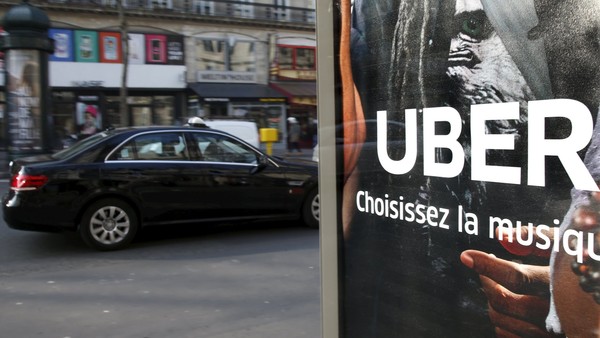“To our opinion, the real challenge lies in motivating the user to provide the data constantly, even after the exciting appeal of technological innovation at the beginning wears off. The data acquisition process should be entertaining for a possible contributor to engage him in the long run. We convince that entertainment and fun are an important design aspect of such data collecting services.”
Étiquette : geolocation (Page 7 of 8)
Ce que vous trouverez ici est le début d’un nouveau voyage, de ceux qui n’étaient plus possibles depuis que les explorateurs du monde entier, de Christophe Colomb à Marco Polo, ont mis le pied sur chaque parcelle de terre que notre planète a à offrir.Sommes-nous seuls dans l’univers ? Tous les esprits curieux se sont une fois au moins posés la question, le regard tourné vers le ciel.La réponse pourrait se trouver ailleurs qu’à travers les étoiles…
Source : OPTICALE – THE GAME
Google has started to increase the fees that it charges for the use of Google Maps, presenting concerns about whether it might raise prices further in future.As Uber prepares to spend $500m on its mapping ambitions, the programme follows earlier investments in mapping that include the acquisition of an imagery collection team from Microsoft’s Bing last June. Last year Uber also acquired deCarta, a mapping company that developed the turn-by-turn directions behind GM’s OnStar software.
Source : Uber to pour $500m into global mapping project – FT.com
Pokémon is taking over the world. Again.
Source : ‘Pokémon Go’ is already bigger than Tinder, and it’s about to overtake Twitter
In the future, we don’t only want to utilize data that HERE produces, but also data that is created by customers
Source : Daimler Confirms Microsoft, Amazon in Talks to Invest in HERE Location Service – WSJ
Internet, les GPS et les smartphones offrent des millions de cartes en accès libre, informations de guidage et de positionnement qui tiennent désormais dans nos poches. Au delà des usages économiques, la géolocalisation de l’homme moderne est une révolution anthropologique.
Source : Le numérique et nous (3/4) : Géolocalisation, une théorie de la dérive
La recherche Google indique aux utilisateurs les horaires d’affluence pour certains de leurs établissements préférés. Lorsque ceux-ci recherchent des lieux sur Google (tels qu’un restaurant, un bar ou une salle de gym, par exemple), ils peuvent voir quand ils sont les plus fréquentés.
Traditional brick-and-mortar retail stores have many disadvantages when competing against online counterparts. Online stores are always open and are available anywhere, have “endless aisles” and can use digital tools to personalize offers to customer preferences. Nevertheless, physical stores do offer customers a number of significant benefits, including immediacy, personal service, and the ability to offer a truly immersive experience.
Recently, however, leading physical stores have discovered that they can also harness the power of powerful digital marketing tools and integrate them directly into the in-store experience. New technology promises to allow retailers to beat online players at their own game, transforming the customer experience and dramatically improving their positioning.
Source : The Potential of Geolocation for Revolutionizing Retail
You can also add additional, optional information that is tailored for you based on where you are if you enable Location History in the Facebook app
Source : A More Useful Notifications Tab on Mobile | Facebook Newsroom
Nous savons de quelle commune et même de quel quartier viennent les voitures qui circulent à Pully, a détaillé Raphael Rollier. Nous savons que sur les 25 000 véhicules qui passent dans la commune chaque jour, 10% appartiennent à des visiteurs (qui restent entre 15 minutes et 4 heures), 5% à des pendulaires (qui restent entre 4 et 8 heures) et 75% à des personnes en transit
Source : Comment Swisscom exploite les données de nos téléphones mobiles – Le Temps









